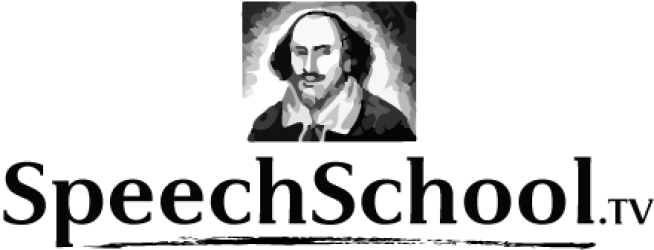Thank you to our students, teachers and staff for supporting us in 2013. We wish you a very happy holiday time and the joy of communication through 2014.
Call centers use speech training to lift service quality

Chances are if you call your bank or telephone provider’s customer service line, the call won’t be answered in your local country, but in India, the Philippines or a host of other countries where large offshore call centres operate. One such example is Barclays Bank in the UK, which forwards thousands of such calls to operators in India.
Generally the operators selected have a good grasp of the English language but one of the difficulties in facilitating calls is the accent of the operator. This causes frustration to the caller who finds it difficult understanding what is being said. The process doesn’t do anything for the reputation of the organisation as ‘coal face’ customer support is seen by the customer to be limited.
SpeechSchool.TV is the largest provider of online speech training and has been working with a number of local and offshore call centres to help them streamline spoken English on the phone so it can be easily understood and the operators are respected. According to SpeechSchool.TV, the demand has not only come from call centre managers but also from HR managers to provide communication training to more senior personal bankers, account managers and those whose spoken impression to the customer is vital.
The School has worked with employees from large organisations such as the HSBC Bank, the Google Contact Centre, telecommunications companies and law and accountancy firms worldwide.
SpeechSchool.TV’s Course Director, John Curtis, says studies have shown that some speech styles and accents are trusted more than others. “When you are able to communicate with the customer in a voice they respect, the communication will be more efficient and effective, delivering better outcomes for your customers. Throughout international call centres, studies show that a Standard English accent has the lowest rate of errors and highest level of customer preference worldwide.”
SpeechSchool.TV provides an online video based program that teaches the Standard English Accent. It has been used by call centres, banks and other firms for streamlined and cost effective speech training worldwide. Students taking the course report they are being understood and respected much more when speaking. They also report positive results with their accents and in some cases an increase in their incomes as a result.
The speech training program for corporates, call centres and other organisations includes the option to do assessments online before starting and then once every few months. These speech assessments are graded and sent on to supervisors who can gauge clearly the level of progress that staff are making in terms of their clarity and effectiveness in speech.
The School also offers a more advanced sales training program – the Master Communicator course. This is a sales and presentation training program based on years of experience in the television advertising industry. It is designed more for native (or stronger) English speakers and improves confidence and presentation skills to provide a lifelong communication advantage. According to the Course Director, it is perfect for professionals looking to get that extra edge.
SpeechSchool.TV is currently working with several organisations to roll out pilot speech and communication training programs for their staff. Further enquiries may be directed to the SpeechSchool.TV website.
Why learning the English accent is the standard in international speech training

With more than 30 years working in speech training, SpeechSchool.TV’s Course Director was recently asked for some thoughts on accent in spoken English.
The School has provided various programs over the years to improve the clarity of students’ speaking. This has included programs that teach the Standard English Accent (Received Pronunciation), the American Accent (General American) and the Australasian Accent.
When students want to improve their pronunciation clarity, they must first be taught a model of clear, authoritative English. But what phonetic model do you base that on? ESL (English as a Second Language) teaching for example uses two standards: either Received Pronunciation or General American.
However, when teaching spoken English, SpeechSchool.TV says one standard is emerging.
The School’s Course Director begins by saying that accent in speech is no bad thing. “Some accent helps to communicate a person’s cultural background and adds a richness and authenticity to who they are. Where SpeechSchool.TV comes in is where the strength of that accent is preventing clarity or having a negative result in the student’s speaking environment.”
“With speech training, all students naturally pick up to some degree the accent of the country in which they are living. For that reason, we have found the best methodology is to teach students the purest form of spoken English, which is Received Pronunciation or Standard English. They can then use that training to find their perfect voice, which provides lasting confidence.”
Apparently one of the problems with teaching the American accent is that it is a regional accent, has fewer sounds and is generally less clear than a Standard English Accent. According to SpeechSchool, American students are better to begin learning Standard English speech, then modify sounds in American settings – which will largely happen automatically. “We liken this process to making beer with pure water, rather than starting with flavoured water. The pure basis provides a more logical starting point in learning.”
After substantial research, SpeechSchool.TV also decided to forego teaching an American Accent course altogether in 2010, focusing on building “the best Standard English pronunciation course for all speakers, anywhere in the world.”
An additional reason for this was that the School noticed more than 70% of students from the American continent were selecting to learn the English Accent anyway.
SpeechSchool.TV believes the best possible basis for clear and powerful English speech is to begin learning the Standard English accent. This form of speech is virtually ‘accentless’ and thus provides the best possible basis for speech training. It also allows students to improve clarity while blending some of their own cultural identity and location into their voice as needed.
To review the course with an initial free trial period please visit: http://www.speechschool.tv/english.html
Free Speech Assessments available now

How do you really sound to others? The way you speak English can make a big difference when making that vital first impression. Your listener decides within a few seconds your likely background, your level of education and whether they trust you and want to listen. To help people discover more about their spoken English, this month the largest provider of online speech training is offering free speech assessments where you can get an indication in 48 hours just how you sound.
For a number of years, SpeechSchool.TV has been providing award winning online video programs in speech lessons, comprising their English accent program where students can learn to speak clearly with a Standard English accent and the Master Communicator program which teaches presentation skills and techniques of effective communication.
The purpose of the free speech assessments are to offer a quick impression on a prospective student’s speech over about 60 seconds of communication and recommend the best course for them. While the free assessment report is brief, it does score the level of clarity (compared to a Standard English accent), make some observations on the impression the speech gives and recommend the right course.
Usually when people look for English speech lessons it is because they are experiencing a problem with their speech or are not getting the feedback and results they desire from others. Studies have shown that poor speech clarity can lead to reduced job prospects and lower levels of confidence. The free speech assessment service hopes to be able to help people identify initial problems that they can then correct with one of the Speech School’s courses.
To take a free assessment (while available) please visit http://www.speechschool.tv
SpeechSchool.TV now in more than 60 countries

While English is the global language of business, for many international students one of the few ways to learn a clear and neutral mode of speaking English has been to travel and live in English speaking countries such as the UK, US, Canada, Australia and New Zealand. Indeed the US and Australia alone take almost 50% of the world’s international students.
However many students are now embracing a full online television and personal assessment program offered by SpeechSchool.TV. The Master Speaker English Accent program is described as the next best thing to living and studying in an English speaking environment for students who already have a basic grasp of the language.
The award winning online program now has students from more than 60 different countries learning to speak English clearly and fluently. Not only are the results reported to be as effective as one to one tuition with a speech teacher but the costs are very economical and students may study in their own country at a time convenient to them.
“The results I’ve seen from doing SpeechSchool.TV have been great. My pronunciation is clearer and I have gained a deeper understanding of my own pronunciation. I am now able to communicate with others using English more fluently and am finding it more enjoyable,” says Wendy Wang from China.
The new hot brand in spoken English

Mention any fashion accessory and leading brand names come to mind: A Louis Vuitton bag or Gucci watch for instance. However, personal image is much more than the bag you carry or the watch you wear. In fact research shows us that the greatest impression made on others is actually caused by the way you speak.
SpeechSchool.TV (www.speechschool.tv) is the market leader in a new trend for professional people around the world wanting to ‘upgrade’ their spoken English. After offering a number of programs over the years, the online school based at the ecentre at Massey University and in central London as found two main courses are the most popular.
The first is the School’s award winning ‘Master Speaker, English Accent’ program. This teaches students from all around the world, through online video learning, how to acquire a clear and neutral Standard English accent. It is extremely popular with people who come from a language background other than English and for native speakers who want to improve the clarity of their speech.
According to SpeechSchool.TV, the School has also previously offered a dedicated American accent program but this wasn’t popular. “At the end of the day,” the School’s Course Director reports, “people around the world want to learn the clearest and purest form of English as their base. They want to sound like Kate Winslet or James Bond, as their accent will blend to some degree depending on where they are based anyway. Even the many Amercian students doing our courses seemed to by far prefer this Standard English accent.”
The second program offered by the School is the ‘Master Communicator’ course. While the English Accent program deals with ‘how you say it’, this course deals with ‘what you say’ and is based on the instructor’s own experience as a Creative Director in a top ad agency. The training in communication technique, public speaking and persuasive speaking has proven very popular with business people and for professional development programs in organizations.
However, while the only obstacle to getting that beautiful hand bag is the sticker price, an ideal spoken voice can take a little longer. SpeechSchool.TV reports that noticeable results are generally seen within 3 months on the course and the real improvements in confidence and finesse take place while continuing the lessons over a longer term basis. Either way, in this increasingly globalizing world, speech will remain the most critical part of the overall impression anyone creates when they speak the English language.
Globish, the world’s fastest growing language

By Jake Davy, Research Assistant, SpeechSchool.TV. e-centre, Massey University
Two businessman, an Indian and a Norwegian, stumble into a bar; the Indian doesn’t speak Norwegian, the Norwegian doesn’t speak Hindu. Despite their linguistic differences a conversation erupts.
“Where from?” The Indian slurs as he pulls out a stool and carefully sits down.
“Norway. You?” Replies the Norwegian as he slumps down next to him.
“Ahhh! Norway! I plan Norway trip next year but feel struggle with work. I’m from India.” Proclaims the Indian excitedly.
“Real? You must come. Norway much fun, many ladies.” Grins the Norwegian as he beckons the waitress over.
Despite the obviously comic nature of this conversation Global English, or Globish, is no joke. This over simplified and grammatically incorrect version of English is fast becoming a standard method of international communication. Its prominence and use is a growing trend that has followed the emergence of English as the global language of business. In order to truly understand its significance however, one must first understand the factors behind its creation.
The key determinant in all of this has been the materialization of a singular global market. As far back as 1983, academics like Theodore Levitt, the head of marketing at the Harvard Business School, were examining the ways in which key technological developments were driving the world towards a unified global marketplace. These emerging technologies were beginning to proletarianize communication, transport and travel and in doing so were creating a society where people all over the world, from all walks of life had access to the same standardised consumer products. Today this shift towards a global marketplace has earned the title of globalisation; a term that has become common place in the vast majority of boardrooms around the world. And as technological innovations such as the internet continue to eat away at the space between nations and continents the concept of globalisation is beginning to affect more and more aspects of our everyday lives.
One of the by-products of globalisation and another of the key influencers in the creation of Globish has been the increase in immigration levels. Between 1960 and 2000, the total number of international migrants doubled to 175 million, which was around 3% of the world’s population at that time. A study in 2000 also found that children in London schools combined to speak over 300 languages. This staggering rise in immigration levels illustrates just how dramatically the linguistic mix of many countries has changed, and the extent to which other languages are beginning to influence how English is being used.
These changes to the linguistic mix of many countries coupled with the drastic rise of globalisation have lead to the emergence of English as the standard language in the global business arena. Some estimates even suggest that there will be up to 3 billion functional users of English by the year 2040, or about 40% of the world’s projected population. There is however, a world of difference between English and Globish, and the reality is, that a huge portion of these so called “functional users of English” will be speaking varying degrees of Globish. So what does this mean for the future of English and its prevalence on the global stage?
That is something that we will leave for you to determine. But in all honesty, what would you rather speak? Or should I say; what speech you like?
Results being achieved at SpeechSchool.TV

An update on the results being seen from the Speech Assessments Department
e-centre, Massey University
One of the most satisfying aspects of the work we do at SpeechSchool.TV is grading student Speech Assessments. We get to hear our students’ voices. In some cases we hear about their week that was, their challenges and their hopes for the future.
For students who come from a different language background, one of the first targets they seek to reach in an Assessment is the pass score of 65% which signifies a basic level of clarity.
Many ESL (English as Second Language) speakers that start with SpeechSchool generally achieve scores between 40% to 55% on their first Assessment. This means they have failed to achieve a clear or neutral accent and their English may not always be easy to comprehend.
What we are seeing with dedicated students is an average increase in score of around 10% within their first 3 months with the Master Speaker – English Accent program. For example, a student who did an Assessment before starting her program achieved a score of 53%. After working with the program for 6 weeks she took a second Assessment, and after comparing the two, Michelle Puckeridge (SpeechSchool voice coach) awarded her a score of 63%.
“This student had improved heaps,” Mrs. Puckeridge said. “It is amazing how much better she sounds. I listened to her old recording and compared it. I made a comment about how pleased I was to receive her recording to assess because I could see her progress.”
In practice this means that particular student has gone from being relatively difficult to understand to almost passing the level required to reach the clarity of most native speakers. Certainly this means a more confident voice.
At the higher level some advanced second language and native English speakers undertaking Assessments are seeing scores between 60 to 75%. The challenge for these students is to move to scores in the 75% to 85% band which reflects the speech of a an educated or trained English speaker, and beyond this above 85% which means they have passed to a professional broadcast standard and would have a voice and mode of speech that should be suitable for radio or television.
The Speech Assessments are objective since they are graded on specific measures of correctness of pronunciation and flow of language. They represent an important way for us to test the effectiveness of our courses. One thing that is particularly noticeable is the strong progress students can achieve when they are clearly practicing the exercises on a daily basis.


